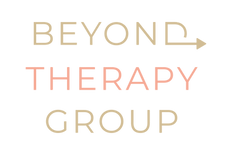September 12, 2025
Trauma-Informed Care versus Trauma Treatment

Quick Summary
- Trauma-informed care creates emotionally and physically safe environments that recognize the widespread impact of trauma and aim to prevent re-traumatization.
- It is used across settings and emphasizes safety, trust, collaboration, empowerment, and cultural awareness without directly processing traumatic memories.
- Trauma treatment involves specialized therapeutic approaches such as EMDR, Somatic Experiencing, IFS, CPT, Prolonged Exposure, and TF-CBT to actively process and heal trauma.
- While all trauma treatment should be trauma-informed, not all trauma-informed care includes trauma-specific interventions.
- At Beyond Therapy Group in Redondo Beach, clients can receive both a safe foundation and targeted trauma therapy based on their readiness and goals.
When it comes to addressing trauma, terms like trauma-informed care and trauma treatment are often used interchangeably. However, they represent two distinct yet complementary approaches to working with individuals who have experienced trauma. Understanding the difference between them can empower you to find the right kind of support and care, especially if you’re exploring therapy in Redondo Beach or the surrounding South Bay area.
In this article, we’ll explore what trauma-informed care is, how it differs from trauma treatment, and how each plays a role in the healing process.
What Is Trauma-Informed Care?
Trauma-informed care (TIC) is an overarching approach used across many settings not just in therapy, but in schools, hospitals, social services, and even businesses. It recognizes the widespread impact of trauma and seeks to create environments where individuals feel emotionally and physically safe.
The goal of trauma-informed care is not to treat trauma directly, but rather to ensure that every interaction whether in a waiting room, classroom, or therapy office acknowledges the possibility that someone may have experienced trauma and aims to avoid re-traumatization.
Key Principles of Trauma-Informed Care:
- Safety – Ensuring the physical and emotional safety of clients and staff.
- Trustworthiness and Transparency – Building trust through clear communication and consistent boundaries.
- Peer Support – Valuing the experiences of others who have walked similar paths.
- Collaboration and Mutuality – Emphasizing equality between provider and client.
- Empowerment, Voice, and Choice – Supporting autonomy and self-determination.
- Cultural, Historical, and Gender Awareness – Acknowledging cultural differences and historical trauma.
In a trauma-informed therapy practice, your clinician doesn’t just focus on your diagnosis or symptoms, they’re also attuned to how your past experiences might affect your current engagement with therapy and everyday life.
What Is Trauma Treatment?
Trauma treatment, on the other hand, refers to the direct therapeutic work that helps individuals process and heal from trauma. This treatment goes beyond trauma awareness and actively engages with the symptoms, memories, and emotional impact of traumatic events.
Trauma treatment often includes specialized therapies designed to help people reprocess difficult memories and rewire their nervous systems. While all trauma treatment should be trauma-informed, not all trauma-informed care is trauma treatment.
Common Trauma Treatment Modalities Include:
- EMDR (Eye Movement Desensitization and Reprocessing)
- Somatic Experiencing
- Internal Family Systems (IFS)
- Cognitive Processing Therapy (CPT)
- Prolonged Exposure Therapy
- Trauma-Focused Cognitive Behavioral Therapy (TF-CBT)
Trauma treatment typically involves creating a therapeutic relationship that feels safe enough for you to revisit distressing memories, explore emotional pain, and begin to release long-held trauma from the body and mind.
Trauma-Informed Care: A Foundation for Safety
At Beyond Therapy Group, we believe that trauma-informed care provides the essential groundwork for effective therapy. Especially in a place like Redondo Beach, where we serve a diverse population with varied life experiences, trauma-informed principles help us create an inclusive, respectful, and empowering environment.
You might not even come to therapy knowing you’ve experienced trauma. Many people come in for anxiety, relationship issues, or depression, only to realize there are deeper roots to their pain. Trauma-informed care allows us to meet every client with openness, curiosity, and sensitivity no matter what brings them through the door.
Examples of trauma-informed practices at Beyond Therapy Group include:
- Giving clients control over session structure and pacing
- Respecting consent and boundaries around touch or difficult topics
- Creating a calm, welcoming office space
- Actively avoiding judgment and pathologizing language
- Collaborating on goals rather than dictating a treatment plan
Trauma-informed care means you’re not just a case or diagnosis you’re a whole person, and your history matters.
Trauma Treatment: Targeted Healing for Deep Wounds
Once a safe, trusting relationship is established, many clients may choose to engage in trauma-specific therapy. This process typically begins when the client feels ready to work directly with the memories and physiological responses associated with traumatic experiences.
Unlike trauma-informed care which is universal and preventative trauma treatment is intentional, focused, and often structured. It may involve developing coping strategies before diving into difficult material and working in stages to ensure you’re emotionally equipped for the work.
For clients in Redondo Beach who are dealing with post-traumatic stress, chronic anxiety, or attachment wounds, trauma treatment can be transformative. You may begin to notice:
- Reduced flashbacks and intrusive thoughts
- Improved emotional regulation
- Fewer panic attacks or dissociative episodes
- A more secure sense of self
- More satisfying and stable relationships
Therapists trained in trauma modalities are not just helping you “talk through it” they’re guiding you through proven methods to reprocess, reframe, and release trauma so it no longer controls your life.
How to Know What You Need
Choosing between trauma-informed care and trauma treatment isn’t an either/or decision. In fact, they often work best together. Many clients begin with trauma-informed therapy to build trust and emotional safety before moving into deeper trauma treatment when ready.
Here are a few questions to consider:
- Are you seeking a general therapist who will be sensitive to your past without diving into trauma-specific work? Trauma-informed care is likely sufficient for now.
- Are you aware of a past trauma that continues to affect your life and want to work through it intentionally? Trauma treatment may be the right fit.
- Are you unsure but want a therapist who respects your pace and can offer trauma-specific tools if needed? Look for someone who offers both.
At Beyond Therapy Group, we always meet you where you are. Whether you’re looking to better understand yourself, manage symptoms, or recover from trauma, our team of compassionate, skilled clinicians can help.
Why It Matters in Redondo Beach
Living in a community like Redondo Beach offers many benefits proximity to nature, a relaxed coastal vibe, and a strong sense of local connection. But people here, like anywhere else, carry hidden pain. High-functioning individuals can still struggle deeply with trauma, anxiety, or emotional burnout.
That’s why we’ve built a practice that is both trauma-informed and trauma-competent. Whether you’re a young adult facing childhood wounds, a parent navigating generational trauma, or a professional whose symptoms have become unmanageable, our team is here to walk with you.
We believe everyone deserves a safe space to explore their story, and no one should feel rushed, misunderstood, or retraumatized in the process. At Beyond Therapy Group, your healing journey is yours to direct but you won’t walk it alone.
Final Thoughts
Trauma-informed care and trauma treatment are not the same but together, they form a powerful foundation for healing. One provides the safe container; the other offers the focused tools. When combined, they help people move from surviving to thriving.
If you’re in Redondo Beach or the greater South Bay area and looking for support, reach out to Beyond Therapy Group. Our licensed therapists are here to help you feel safe, seen, and supported no matter where you’re starting from. Contact us today!
Recent Posts
